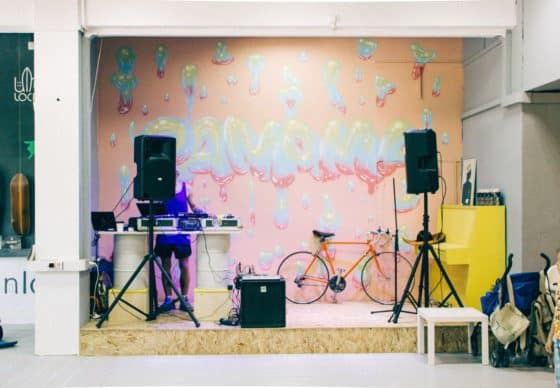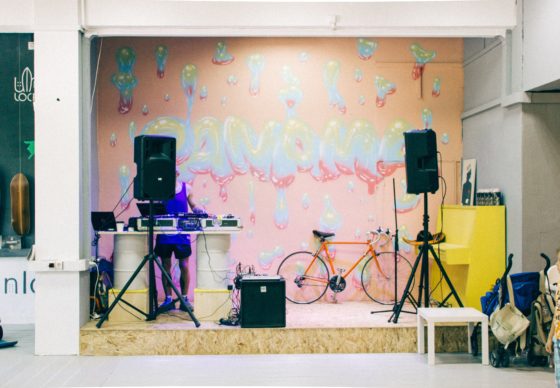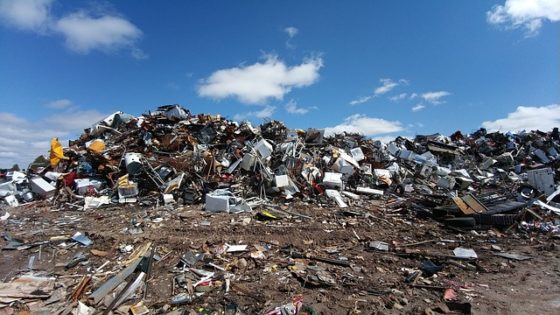
The Eco Benefits of Lending Over Buying
We’ve gotten to a stage where production can no longer be called ‘progress’, if we hope to champion a sustainable economic model, we need to invent a new framework for measuring growth. There are many ways to read into this paradigm, however one of the most promising is the application of a “circular economy,” one that relies on redistribution, rather than production. More than just an idea, the emergence of companies like AirBnB and Gumtree have proven its viability against the ‘take, make, dispose’ system. These types of companies focus on the eco benefits of lending over buying.
Within this model there is the growing idea renting, rather than buying products outright, could be one of the solutions to a linear consumption, with the London-based start-up Fat Lama at the forefront of its development.
Tackling E-Waste
By 2023 we will have produced 52.2 million tonnes of e-waste consisting of our outdated mobile phones, computers, cameras and TV’s. Electronic refuse is not only highly toxic but often easily recyclable and yet only 20% of all e-waste is actually recycled.
However, many of theses electronic items such as cameras or projectors, are short-term purchases we do not use enough to warrant ownership. In using a ‘marketplace’ to borrow rather than buy, you are dramatically reducing your personal contribution to the e-waste crisis. If we start treating products as investments with a long product lifecycle, we can remove ourselves from the ‘take, make, dispose’ system and instead become part of a circular economic approach.
A Social Economy
Our current ideas around consumerism revolve around a product that’s detached from its providence. It’s why we shop in places like Primark and encounter no ethical dilemma. We’re part of an economy that is clinical and impersonal: one that doesn’t care about its consumers. Pretty much the opposite is true when using a rental marketplace. Every transaction is an interaction, and the platform depends on relationships being made between borrowers and lenders. Many lenders on platforms such as Fat Lama will offer additional items or even help setting up equipment for their renters. If it doesn’t sound like passive income, then fear not: the benefits far outstrip the limitations. Unlike a top-down economy, building a social economy refocuses spending into local communities and allows for a more tailored service. For creative professionals using the platform to lend or borrow items like DJ decks, PA systems, film gear or gardening equipment, sharing platforms are also a fantastic way to meet others with similar interests and network in their respective industries.
Moral Money
In this case, it can pay to be conscientious. By renting out your goods you are not only saving the planet but also boosting your income. This often leads to cases where users subsidise, if not entirely pay for, their original purchase. Some Fat Lama lenders have made up to £3,700 a month, just by renting out their underused possessions, a sum far above the average monthly income in the UK. For those in unstable professions, such as freelancing, acting, or just part of the ‘gig’ economy, being able to generate a little (and sometime a lot) extra capital could be a lifesaver during dry periods of work.
Whatever your reasons for choosing lending over buying, know this…a more circular economy is good for the environment and has countless eco benefits. You don’t need to toss certain items away. You don’t even need to donate them. Lend your underused items out, so someone else can get some use out of them too.
Biofriendly Planet would like to thank Geir Darge for his contribution. Geir is a content writer for Fat Lama. He studied Social Anthropology at the University of Edinburgh and regards human culture as his main interest. Since graduating he has worked in events management, specifically with Single Malt Whisky tastings. In his free time, he can be found at the top of mountains.





Post a comment